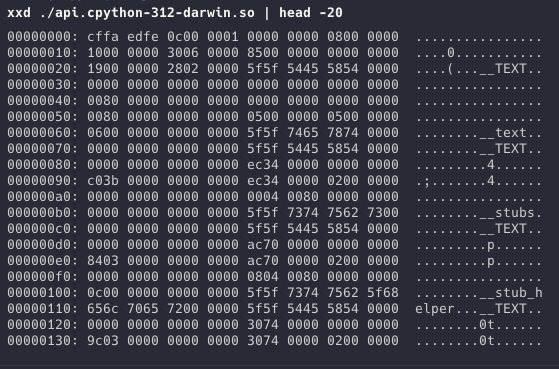I was looking for a method to distribute some proprietary code to 3rd parties with some level of IP protection. Knowing that this is a losing battle, and that I suspected that it was more about limiting curiosity rather than deliberate reverse engineering, I decided to investigate the use of cython to compile python via C into a binary.
This repo demonstrates the process of building a Flask app into a Docker container with a compiled binary of the application. It also uses a multi-stage docker build to ensure that the original source files are never copied into the target image.
For a more thorough obfuscation, I would suggesting looking into using a more robust solution such as this: https://github.com/0sir1ss/Anubis
pip install -r requirements.txt
python setup.py build_ext --inplace
As you can see, the binary is compiled as a shared object fil, the following screenshot shows a hex dump of this file. Although it would be possible to reverse engineer this file, the effort required to do so would be considerable.
gunicorn api:app
docker buildx build --platform linux/arm64 --load --tag helloflask .
docker buildx build --platform linux/amd64 --load --tag helloflask .
docker buildx build --platform linux/arm64,linux/amd64 --tag helloflask .
docker run -p 80:80 -it helloflask


